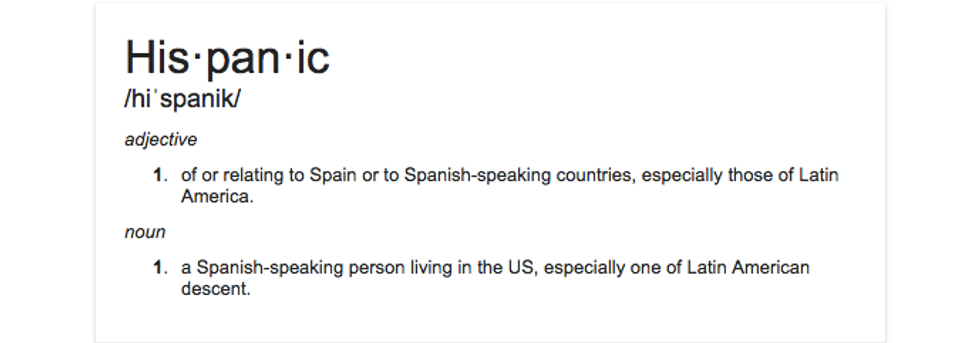If you identify yourself as an American, does that automatically mean that you know everything there is about the English language?
If you read the question above and laughed from the insane insinuation, then I will pose another question for you to think about.
Why is it that as a person who identifies as a Hispanic, I am expected to know everything there is about the Spanish language?
This is the exact reason why I have come to not enjoy Spanish classes. For some reason or another, there is an expectation that has come with being a Hispanic student in a Spanish class. As if we are to know every verb, tense, conjugation, vocabulary word, slang, or curse word because of our background. But the fact of the matter is, not all of us were either given the opportunity to learn the language or were just unresponsive/unappreciative when it was being taught.
I expected being called on to participate more than my peers throughout both my middle school and high school career for numerous reasons:
- My mom was a Spanish Teacher at my district high school.
- It was a well-known fact that my mom was born in Argentina before coming to the States.
- I worked with my grandparents (who spoke more Spanish and Italian than English) at their Tailor Shop a few towns over when I began high school.
- Whenever I would stub my toe I would often repeat phrases that my mother would say and then ask me not to repeat without realizing.
However, I honestly thought that this stigma would not follow me over 600 miles to college; yet, here I am. I decided to take the most basic level of Spanish because truthfully, I don't know that much and I wanted a base to build off of after completing the required course. After being corrected on pronunciation on the first day of class, I approached my professor and explained that I grew up with a different way to pronounce the double L (ll) while speaking. She asked what country I was identifying with and after I said Argentina she immediately said that I was going to be challenged harder than the other students. Her reasoning was based on an assumption that my capabilities had to have been higher than most of the class. I was merely just informing her that when I answer questions in class, or asked a question that it will be in a different accent. My professor took it as I was advanced and wanted the easy way out of the language requirement.
For the past semester, I have been repeatedly volunteered to participate without a say – merely because the professor knew I was Hispanic. What made it worse was that any time that the country of Argentina was referenced, or South America as a whole was said, she would dart her attention to me and question me as if I was an expert. Even though I openly stated that I had only been to the country twice, once when I wasn't even able to talk yet. To say that I am happy that the semester of Spanish 115 is over would be an understatement. Yet, it still leads me to wonder why I was put on a pedestal for simply just being Hispanic?
If we as a society don't believe that anyone who identifies as being American is to know everything about the English language, then why is it okay to do exactly that to others?





















